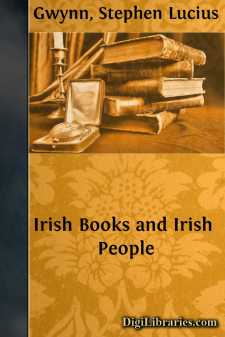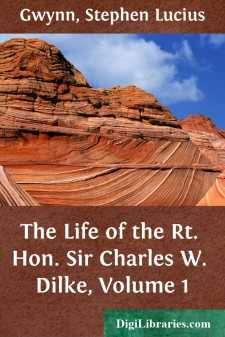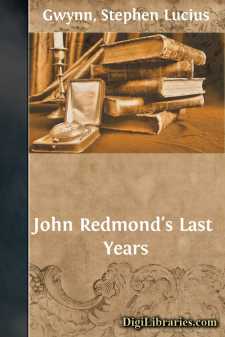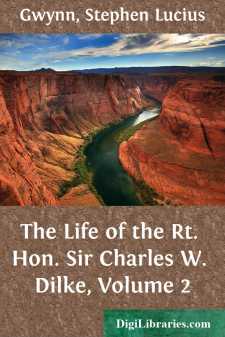Categories
- Antiques & Collectibles 13
- Architecture 36
- Art 48
- Bibles 22
- Biography & Autobiography 813
- Body, Mind & Spirit 142
- Business & Economics 28
- Children's Books 17
- Children's Fiction 14
- Computers 4
- Cooking 94
- Crafts & Hobbies 4
- Drama 346
- Education 46
- Family & Relationships 57
- Fiction 11829
- Games 19
- Gardening 17
- Health & Fitness 34
- History 1377
- House & Home 1
- Humor 147
- Juvenile Fiction 1873
- Juvenile Nonfiction 202
- Language Arts & Disciplines 88
- Law 16
- Literary Collections 686
- Literary Criticism 179
- Mathematics 13
- Medical 41
- Music 40
- Nature 179
- Non-Classifiable 1768
- Performing Arts 7
- Periodicals 1453
- Philosophy 64
- Photography 2
- Poetry 896
- Political Science 203
- Psychology 42
- Reference 154
- Religion 513
- Science 126
- Self-Help 84
- Social Science 81
- Sports & Recreation 34
- Study Aids 3
- Technology & Engineering 59
- Transportation 23
- Travel 463
- True Crime 29
Irish Books and Irish People
Categories:
Description:
Excerpt
INTRODUCTION.
My publisher must take at least some of the responsibility for reviving these essays. All bear the marks of the period at which they were written; and some of them deal with the beginnings of movements which have since grown to much greater strength, and in growing have developed new characteristics at the expense of what was originally more prominent. Other pages, again, take no account of facts which to-day must be present to the mind of every Irish reader, and so are, perhaps significantly, out of date. Nobody for instance, could now complain that Irish humour is lacking in seriousness. Synge disposed of that criticism—and, indeed, the Abbey Theatre in its tone as a whole may be accused of neglecting Ireland's gift for simple fun. Yet Lady Gregory made the most of it in her "Spreading the News," and Mr. Yeats in his "Pot of Broth."—How beautifully W. G. Fay interpreted an Irish laughter which had no bitterness in it.
But the strong intellectual movement which has swept over Ireland has been both embittering and embittered. These last five and twenty years have been the most formative in the country's history of any since Ireland became the composite nation that she now is, or, perhaps, has yet to become. At the back of it all lies the great social change involved in the transfer of ownership from the landlord to the cultivators of the soil—a change which has literally disenserfed three-fourths of Ireland's people. Yet the relations are obscure, indefinite, and intangible, which unite that material result to the outcome of two forces, allied but distinct, which have operated solely on men's minds and spirits. These are, of course, the Gaelic revival and the whole literary movement which has had its most concrete expression in the Irish theatre, and its most potent inspiration in the personality of Mr. Yeats.
Of these two forces, one can show by far the more tangible effects, for the Gaelic League has issued in action. Setting out to revive and save the Irish language as a living speech, the instrument of a nation's intercourse, it has failed of its purpose; but it has revived and rendered potent the principle of separation. Nationalist, it will have nothing to do with a nationality that is not as plainly marked off from other nationalities as a red lamp from a green lamp; and the essential symbol of separate nationality is for orthodox Gaelic Leaguers a separate language. America, said an able exponent of this doctrine the other day in a public debate, will never and never can be a nation till its language is no longer recognisable as English—till its English differs as much from the language of England as German differs from Dutch. An inevitable corollary to this view is the necessity for complete political separation from Great Britain—if only to provide the machinery for this complete differentiation by daily speech.
I cannot pretend to assess impartially the value of this movement. It asserted itself in passionate deeds at a moment when many thousands of us Nationalists were taking equally vigorous action in pursuit of a less tribal ideal. Thousands of us lost our lives, all of us risked our lives, with the hope of achieving a national unity which could never be built on the basis of regarding no man as an Irishman who did not speak, or at least desire to speak, Gaelic for his mother tongue. The action of Irish soldiers was thwarted and frustrated by the action of a very few separatists, with a very small expense to themselves in bloodshed. But the tribute to the work of the Gaelic League is that Ireland accepted them and rejected us. None can deny that it has been a potent stimulus to national education; and it only lacks official prohibition by the British Government to become more powerful still.
Whatever the outcome, I take back nothing of what is written in these papers concerning the Gaelic revival. In a country governed against the will of its people, forces that, under normal and healthy conditions, would be purely beneficent, may easily grow explosive and disruptive. Yet I have not changed my mind on a critical question which led me to sever my connection with the work of the Gaelic League. When that body decided to rely on compulsion rather than persuasion, it took the wrong road, if its object was to endear the Irish language to all Ireland, and to induce all Irishmen to cherish it as part of the common national heritage....





